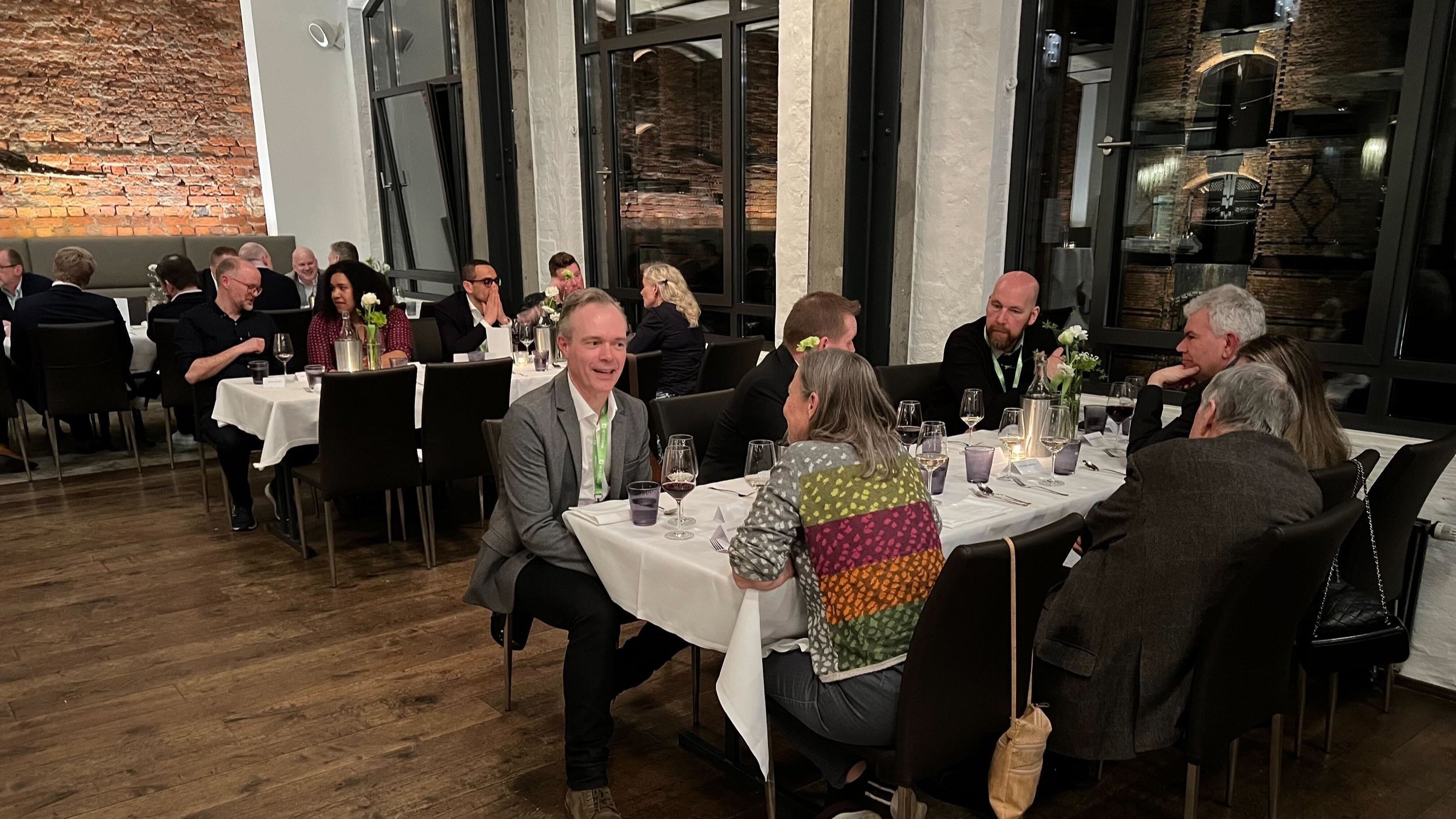Dispatches from WISEcon24
Last week, UNIwise held WISEcon24 – the third instalment in a series that began in Legoland, Denmark and was more recently held in Manchester, UK. Taking place amidst the beautiful campus of Bucerius Law School, higher education professionals from across Europe gathered on 9-10 April to share best practice, discuss trending topics (such as the issue of Generative AI), and build meaningful connections between institutions.
Now that the dust has settled, we’d like to take this opportunity to reflect on a whirlwind couple of days – and a resoundingly successful WISEcon24 – which will be remembered for many years to come...
On the morning of 9 April, WISEcon24 was kicked-off by our very own CEO Henrik Løvig, and Steffen Skovfoged, our Chief Growth Officer. After introducing the conference, they handed over to Sikt – The Norwegian Agency for Shared Services in Education and Research – and the Arctic University of Norway for the first keynote of the conference.
This talk, titled “On Everyone’s Lips and at Anyone’s Fingertips – The Norwegian Struggle to Rethink Assessment in the Face of Generative AI,” was led by Christian Moen Fjære, Produkt Manager Digital Exam, Sikt, Haakon Aasprong, Product Manager LMS, Sikt, and Maria Myklestad, Sector Coordinator Digital Exam, UiT. After an interactive poll gauging attendees’ opinions on AI and the threat it poses, the speakers went on to discuss Generative AI in the Norwegian context alongside some of the approaches taken by universities since the surge of AI tools began.
After this engaging talk, it was time for the first round of breakout sessions! We changed the layout and scheduling of the breakouts at WISEcon24, adopting breakout “streams” to ensure the conference offered talks that would be relevant to all attendees, at every stage of the WISEflow journey. Our three streams were: beginner, faculty and admin.
In the beginner stream, Helena Nekola, Coordinator of selection procedures for bachelor’s programs at WU Vienna, kicked us off with a talk on using WISEflow for large-scale entrance exams, while the faculty stream saw Annika Büchert Lindberg, Special Consultant at the University of Aarhus/SIG Group, discussing how changing assessment design can guarantee more learning, all while putting in the same level of effort. In the admin stream, Sulanie Peramunagama, Digital Assessment Advisor at Brunel University London, presented on WISEflow’s Grade Audit Trail, and how this can be used for double marking. We also held UNIwise-led sessions during each breakout slot – the first of which covered the improved marker’s journey in WISEflow.
The end of this first round of sessions meant it was time for lunch, which was held in the main Helmut Schmidt auditorium on Bucerius’ campus. During this break, students from the Law School offered tours of the campus – which many of our attendees joined! This was a great way to break up the day and provide some more context to the already breathtaking university grounds.
Following lunch, it was time for round two of the breakouts. Gerd Mannhaupt, Vice President for Student Affairs and Director of School of Education at the University of Erfurt, led the breakout stream with his talk on crisis management, and how to breed a new digital assessment culture at your institution. In the faculty stream Claudia Cox, Digital Assessment Advisor at University College London, informed attendees about how to ensure ‘buy-in’ from academics when transitioning to a digital platform. The admin stream saw the first of our API sessions. Katrine Gerner, Senior Project leader, and Sune Ketil Sparre, Product Manager/ Data Manager, both of Aarhus University, gave their talk on steps to success using the WISEflow API! Over in the UNIwise-led session, the topic was academic integrity and assessment security!
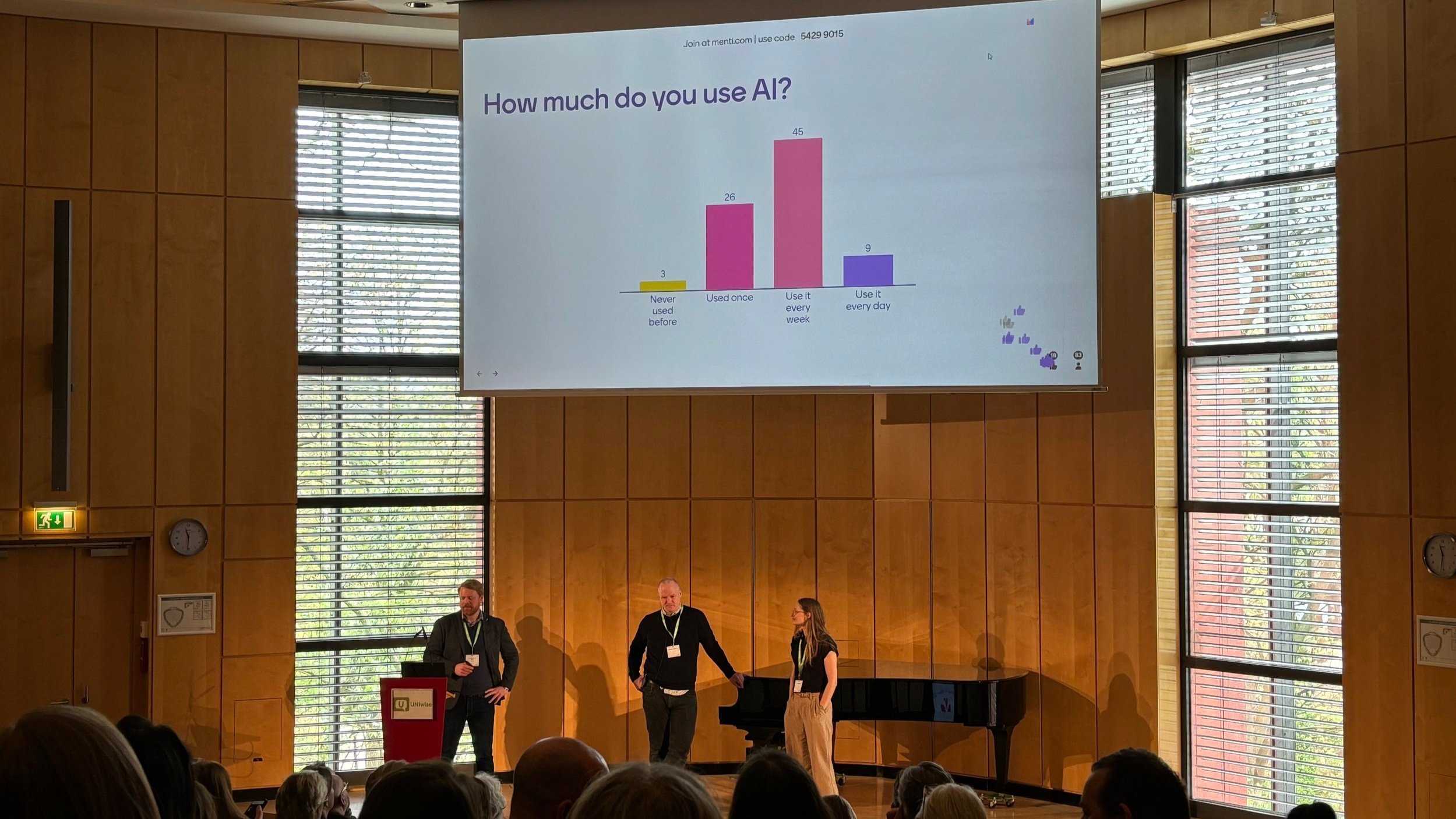
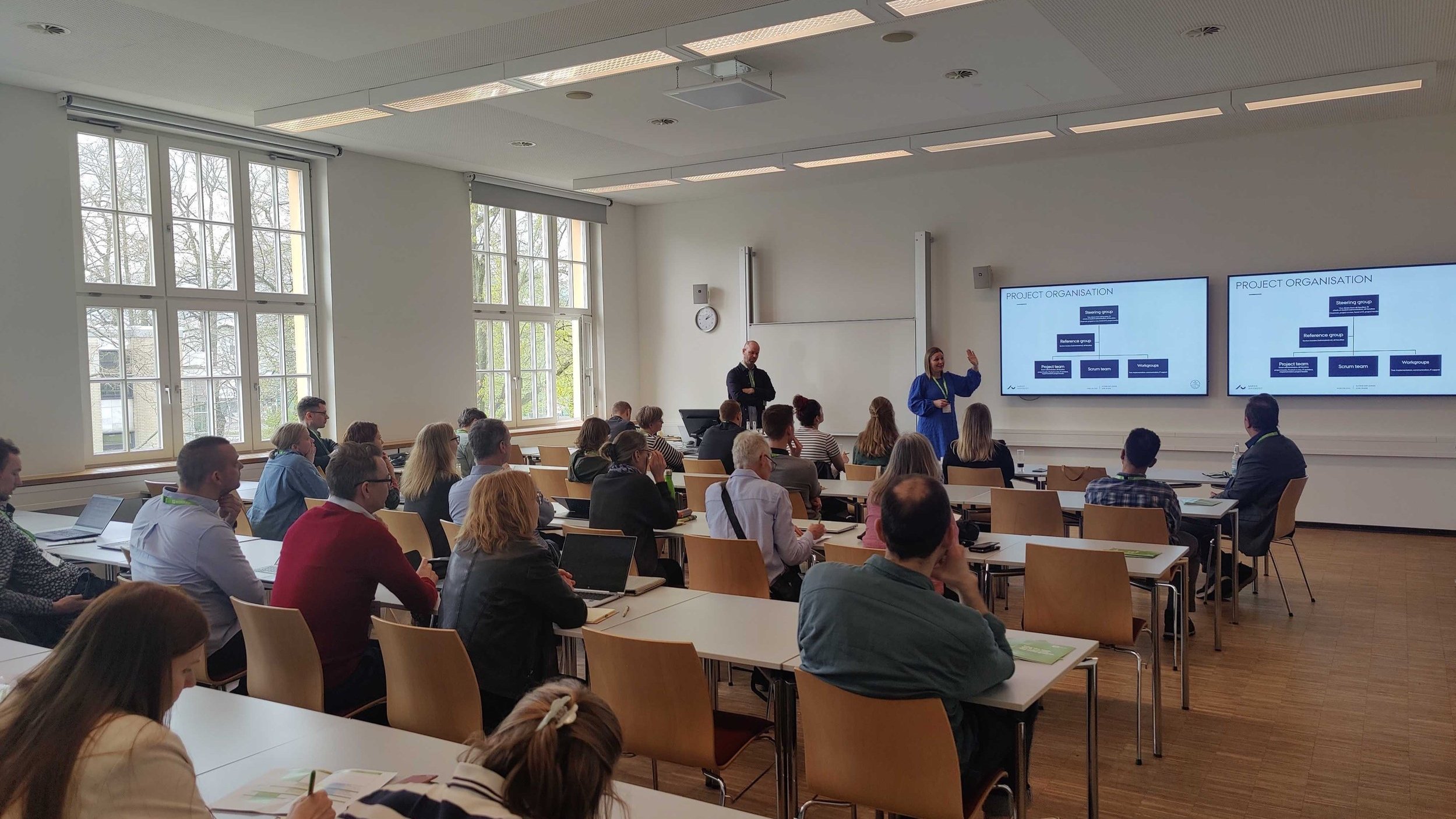
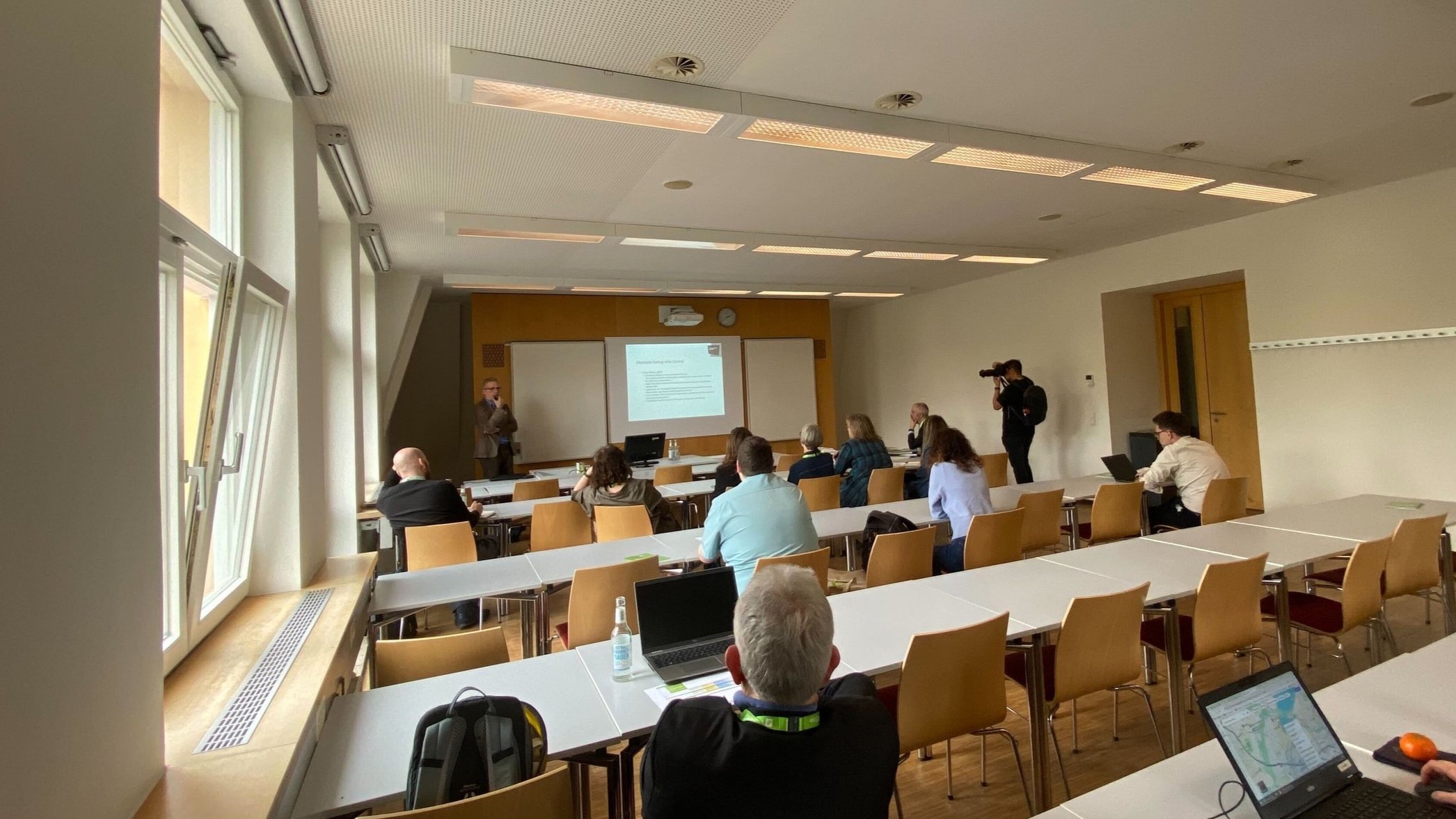
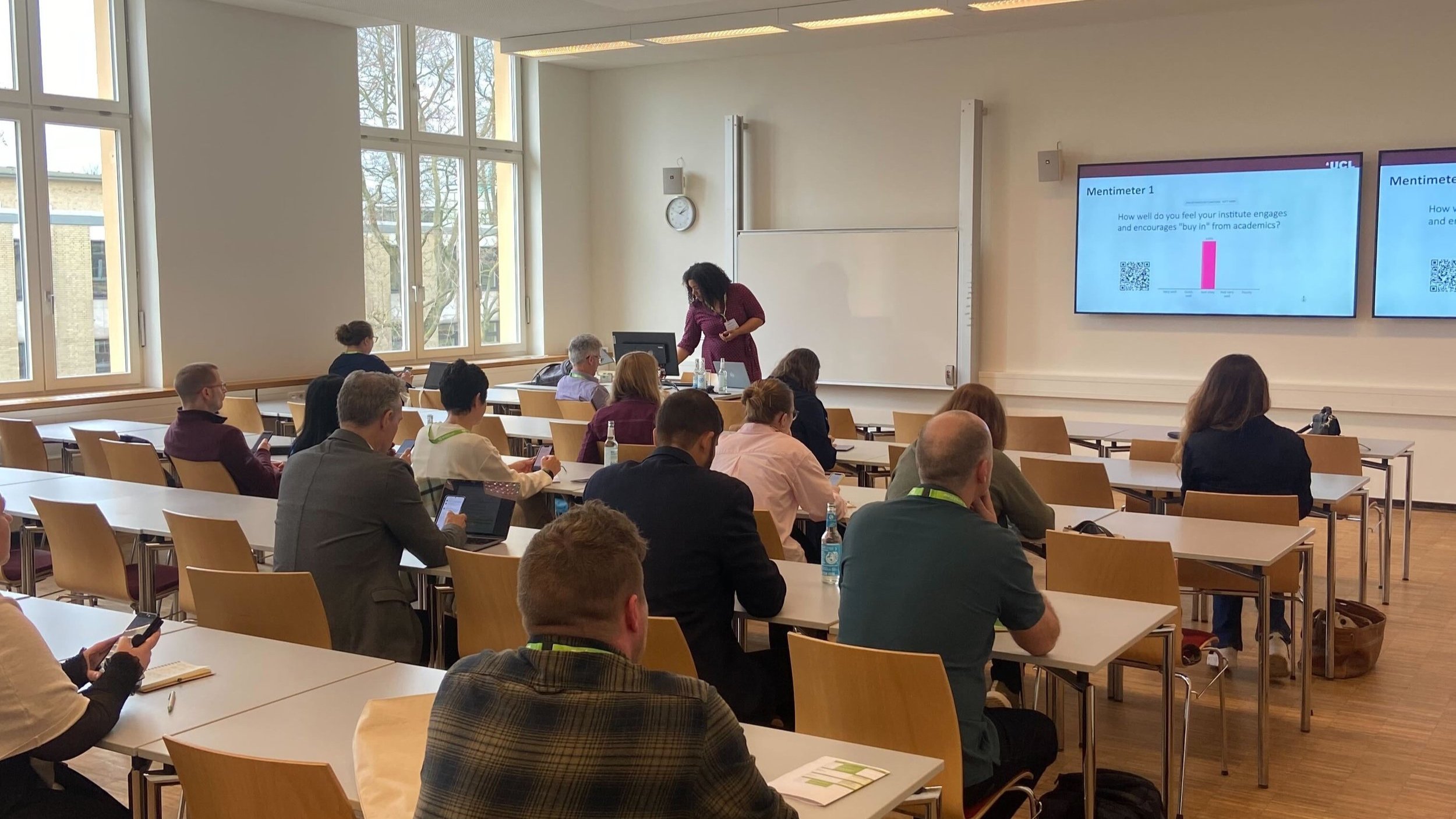
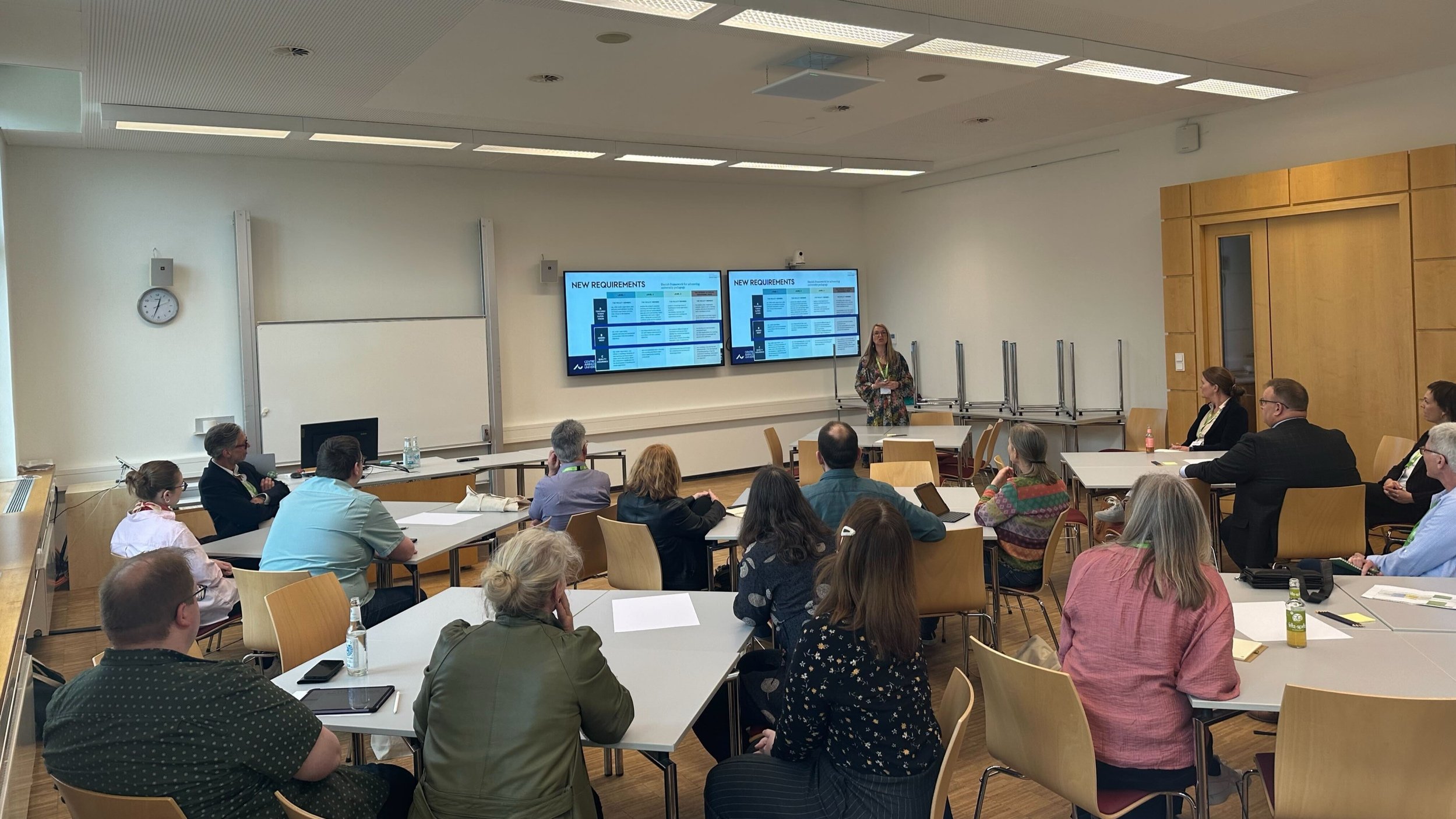
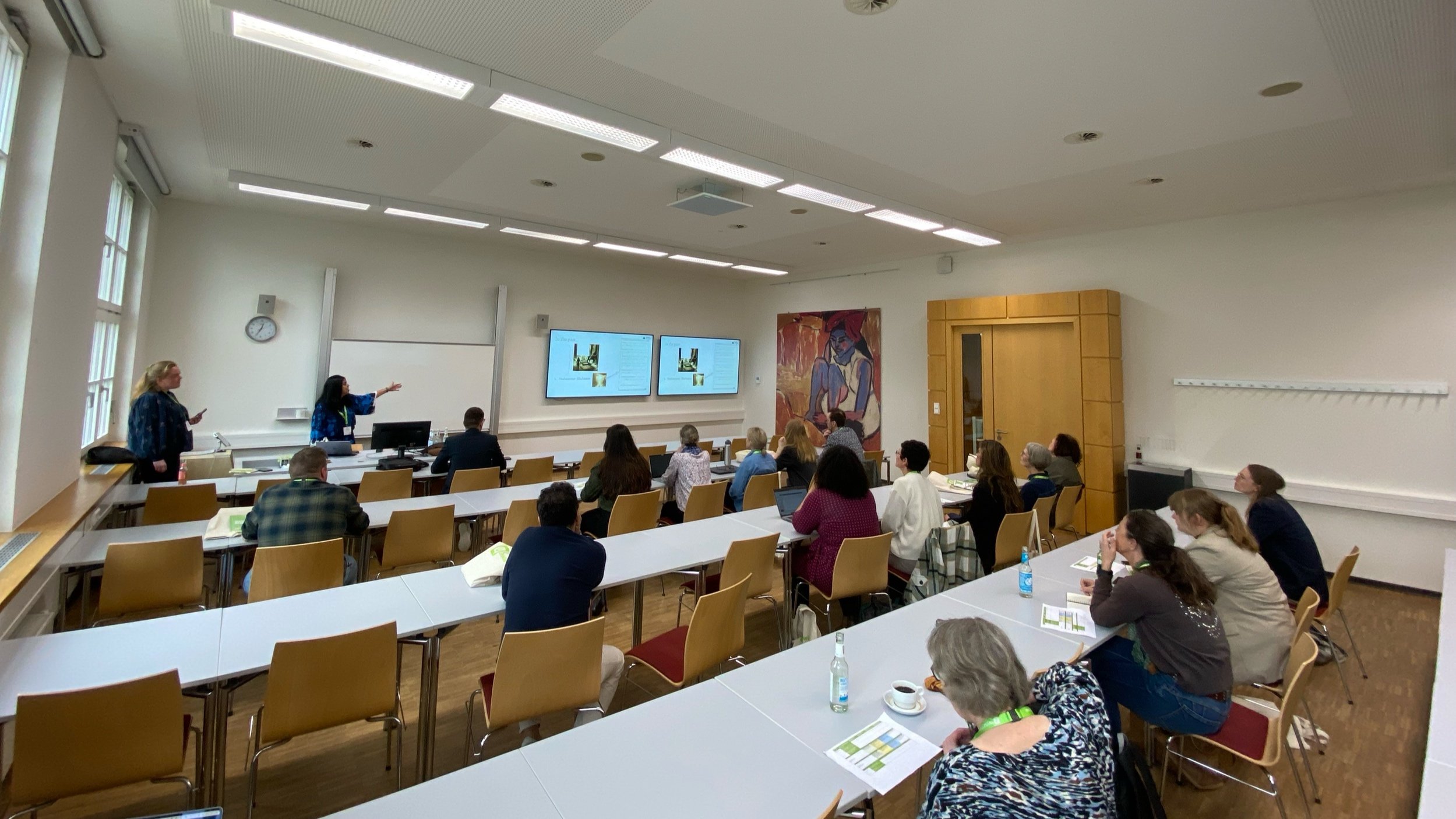
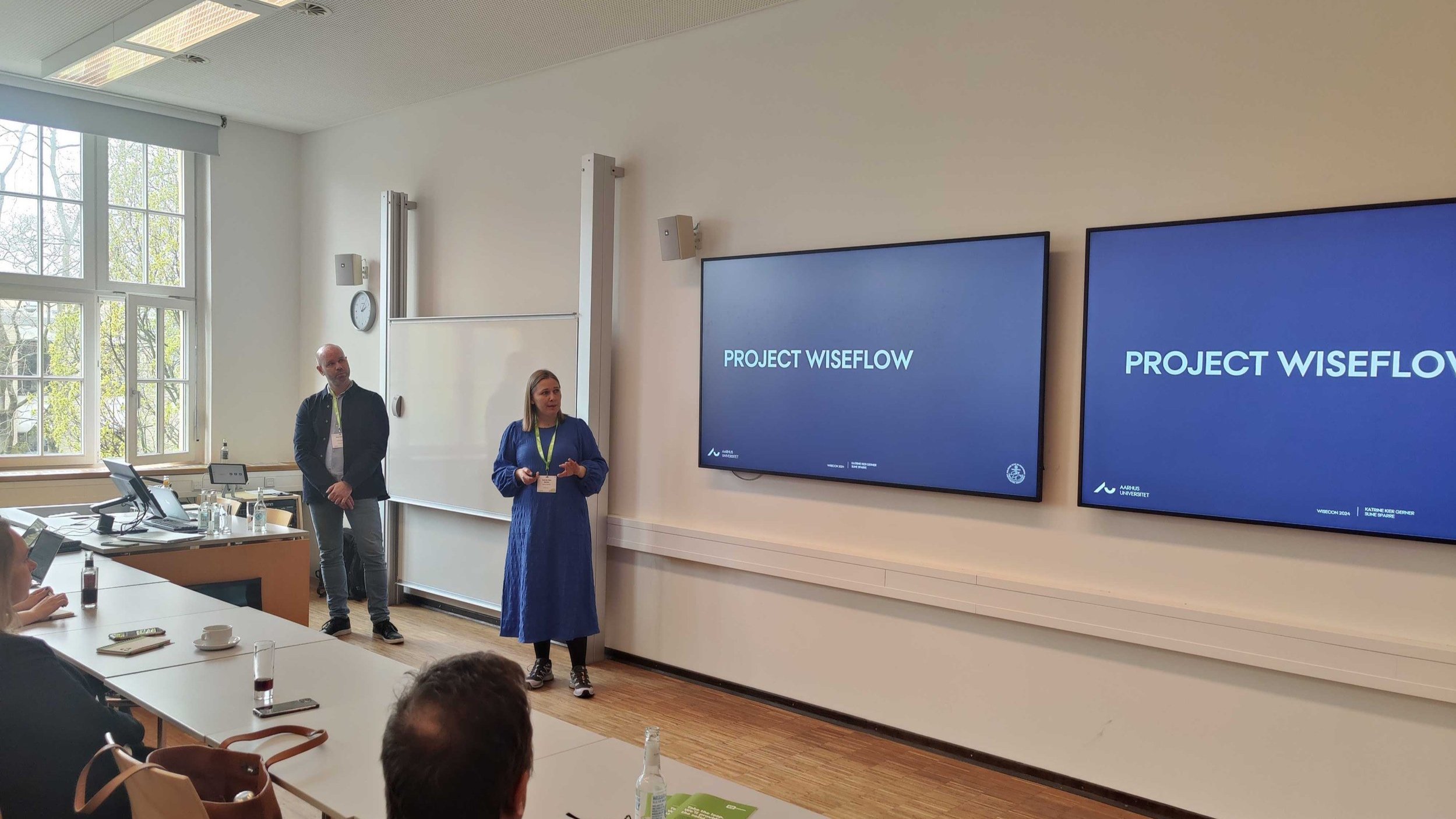
The penultimate keynote presentation on day one came from Vegard Kolbjørnsrud, Associate Professor at BI Norwegian Business School. This session, titled “Leading with machines on your team,” discussed a multitude of topics relating to Generative AI. This included how to incorporate AI into the workforce effectively and equitably, raising tech-literacy, how to raise the overall intelligence of an organisation as opposed to simply its efficiency, learning the language of machines, and much more. Vegard’s parting advice for institutions was 1) Do not make people do machine work, 2) Develop bilingual managers and workers, 3) Build Tech Skills, and 4) Try and take responsibility.
Vegard Kolbjørnsrud during his talk, “leading with machines on your team”
Following Vegard came Christopher Matthews, Software Engineering Manager at Amazon Web Services. With AWS taking an increasing role in reinventing education, Christopher covered “The Evolving Role of EdTech's” and how his organisation is placing itself at the forefront of technological innovation across the sector.
Rasmus Blok, our Chief Product Officer, closed out the day with a discussion of current and future WISEflow themes, offering an insight into the development of the platform and highlighting the strategic directions we are taking going forward.
As day one drew to a close, attendees made their way across the city to Hamburg’s historical Speicherstadt district for our Gala Dinner event. This offered an opportunity for some more networking, alongside the chance to sample some of the finest food Hamburg has to offer. Everyone left the restaurant relaxed and with a full belly, ready for another day of captivating sessions.
Day two began in a similar fashion to the one before, with a short welcome back from CEO Henrik Løvig followed by a keynote session – this time from Carlton Wood, Head of Environment Earth and Ecosystem Science at the Open University. This session focused on the “future of exams and assessment in higher education,” and detailed an overview of the Open University’s experience while transitioning to digital assessment in the wake of the pandemic, and the lessons they learned along the way – alongside the problems they had to find solutions to. This was a great way to start the second day and left everyone ready for more!
We had a second keynote session that morning, and so we welcomed Torsten Eymann, Full Professor for Information Systems Management at the University of Bayreuth, to the stage. Torsten’s keynote session followed an evaluation of how his institution had implemented online exams and discussed various frameworks conditions through this lens. This session gave offered eye-opening insights into the attitudes of both students and university faculty during the implementation of and transition to a digital assessment platform, leading to some very interesting post-session discussions between Torsten and the audience.
The breakouts beckoned, and so we moved onto our third round of stream sessions. The beginner stream featured Mike Wilson, Principal Project Manager and the first of our two speakers from the University of Portsmouth. Mike took attendees through the Portsmouth experience of onboarding WISEflow, offering some useful advice to all. In the faculty stream, Bruno Tavares, Chief Information Security Officer at the Universidade Aberta, offered his institution’s experience of working with the WISEflow API, before UNIwise Development Team lead Tim Langer Rasmussen gave the UNIwise perspective. Sascha Prostka, Head of the Examination Office at Hamburg School of Business and Administration, ran the admin stream session, which delved into digital examination offices and their workflows. The UNIwise-led session at this time was a Q&A with our Customer Success team.
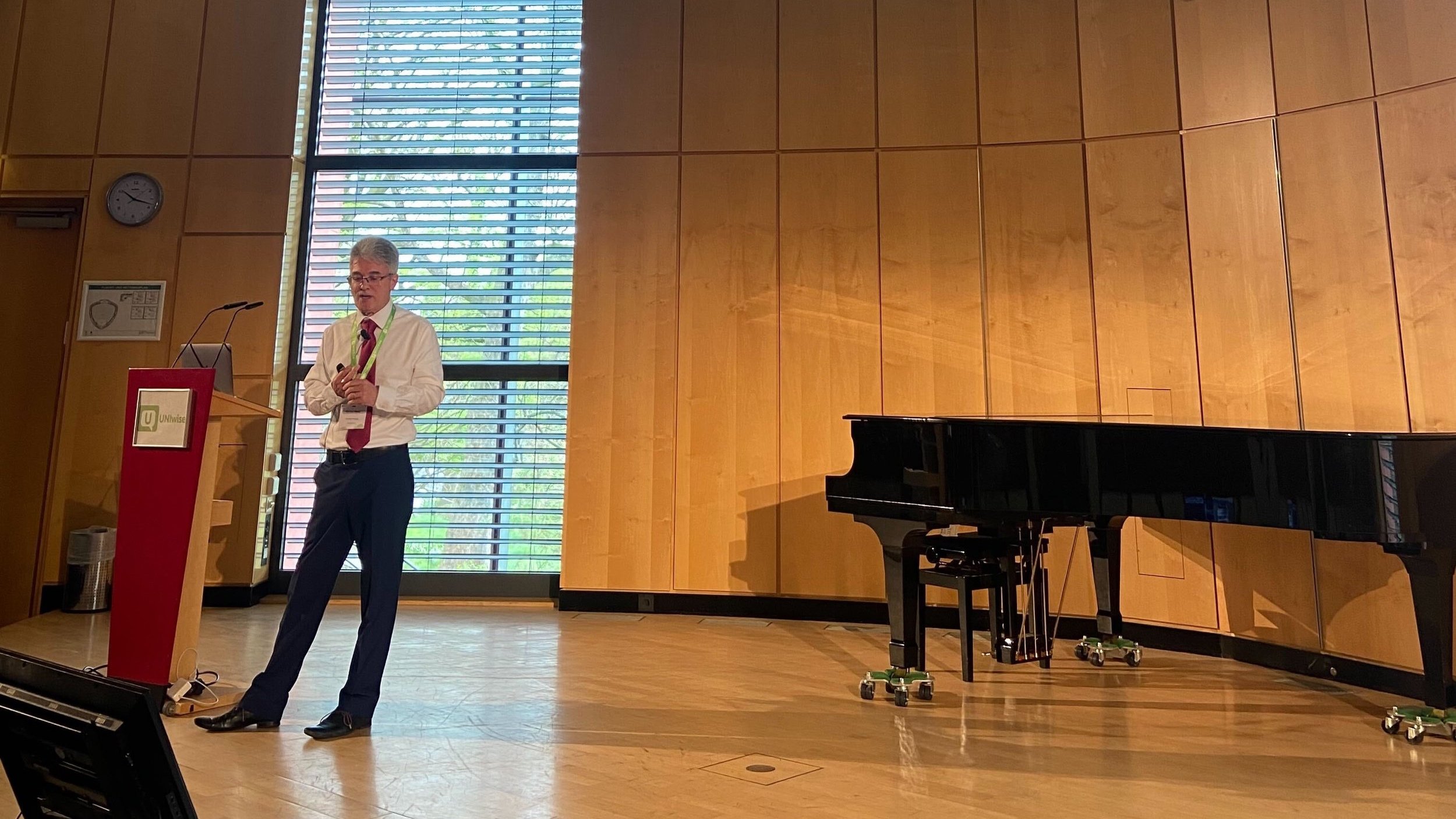
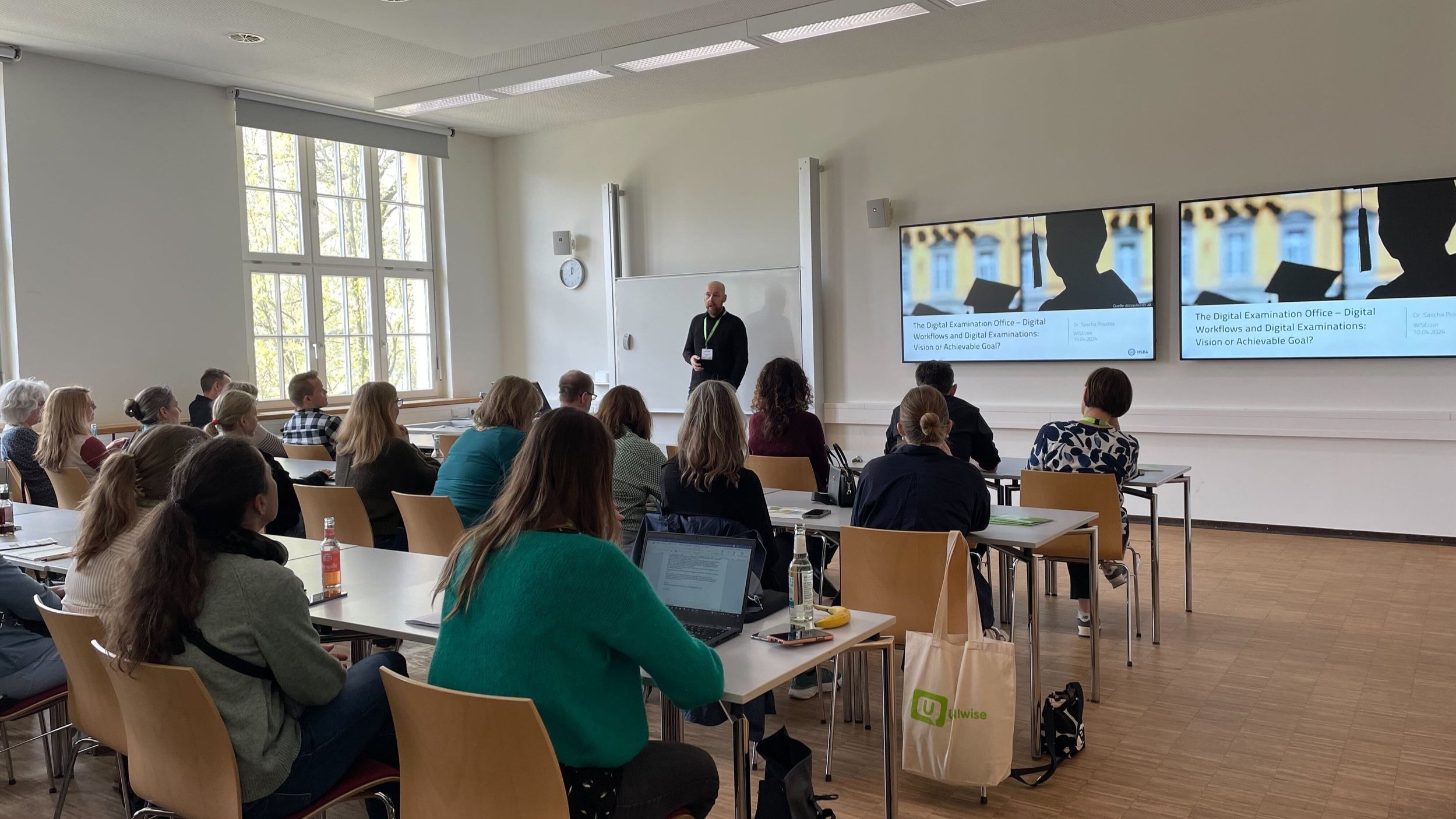
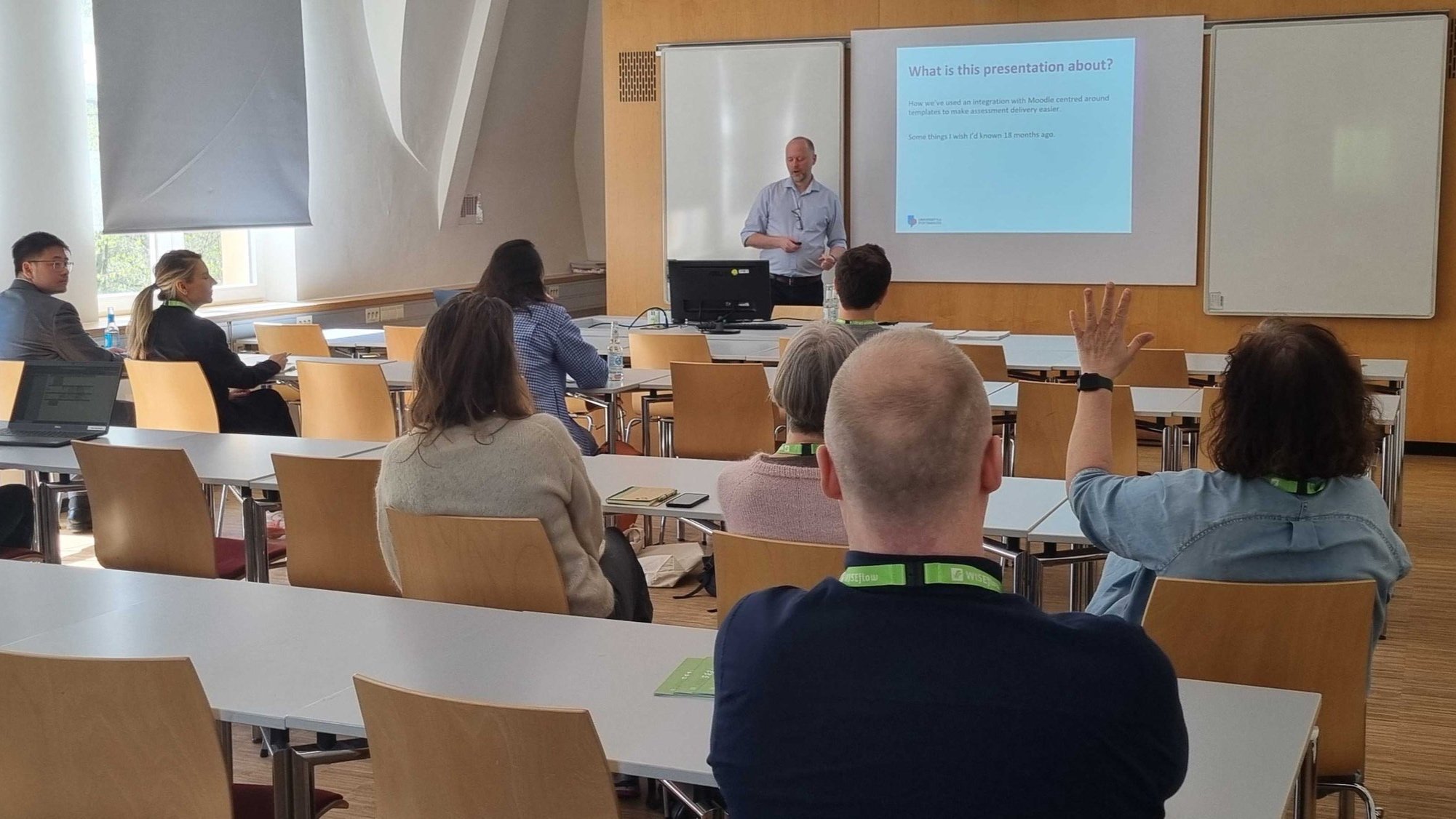
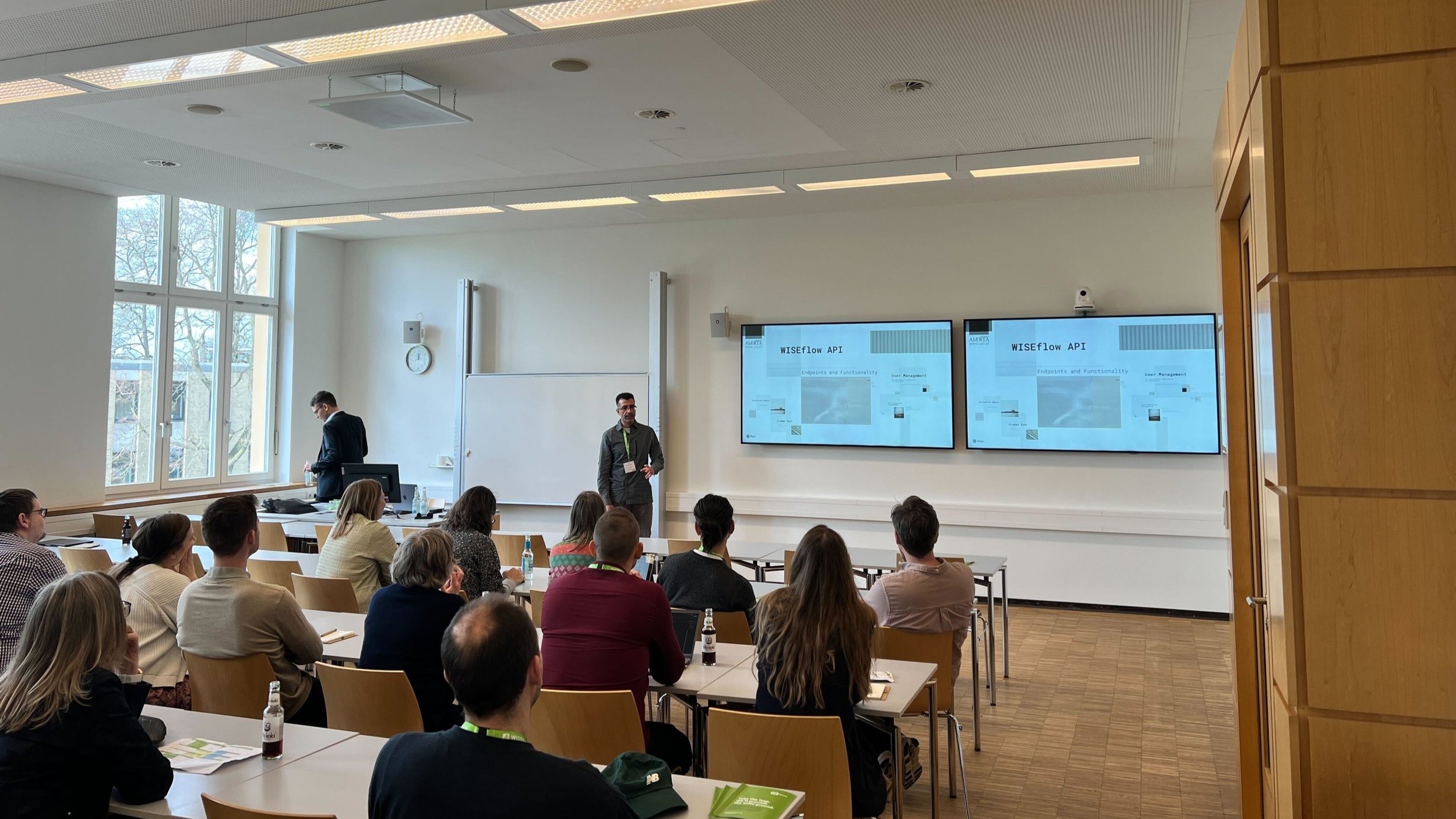
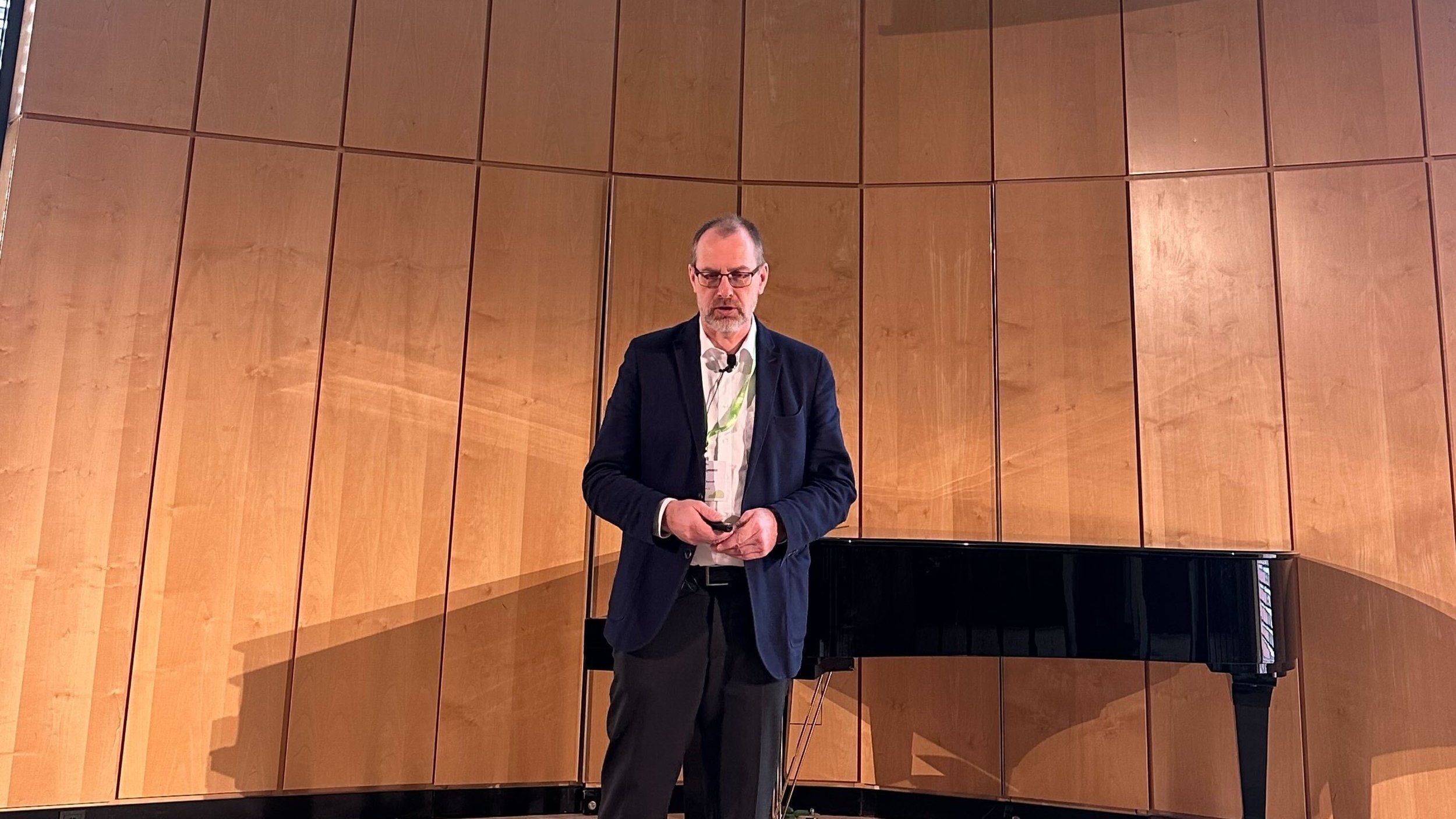
It was then once again time for lunch, which meant more campus tours and a well-earned break. The sun was well and truly shining on day two, and so attendees enjoyed wandering the grounds and eating their lunch among the outdoor furniture.
Following lunch, it was time for the final round of breakout sessions. The quality of sessions thus far had been incredibly high, and this continued right through to the end with yet another selection of deeply engaging breakouts. In the beginner stream, Lezel Roddeck, Higher Education Programme Director at Bucerius Law School, used the host institution as a case study for demonstrating the diffusion of digital assessment across the HE-sector. Our second University of Portsmouth speaker, eLearning Support Analyst Chris Wood, led the faculty stream with his talk on using WISEflow for ePortfolios – and many attendees enjoyed this new insight into innovating with the platform. The final admin session saw Dietmar Franzen, Vice Dean of Frankfurt University of Applied Sciences, giving his talk on ‘Pre-Assessment process integration,’ once again framed through the use of the WISEflow API. Our last UNIwise-led session came from our Head of Concept, Mads Stenhøj Andresen, and covered UNIwise’s SYCAmore and the theme development process within WISEflow.
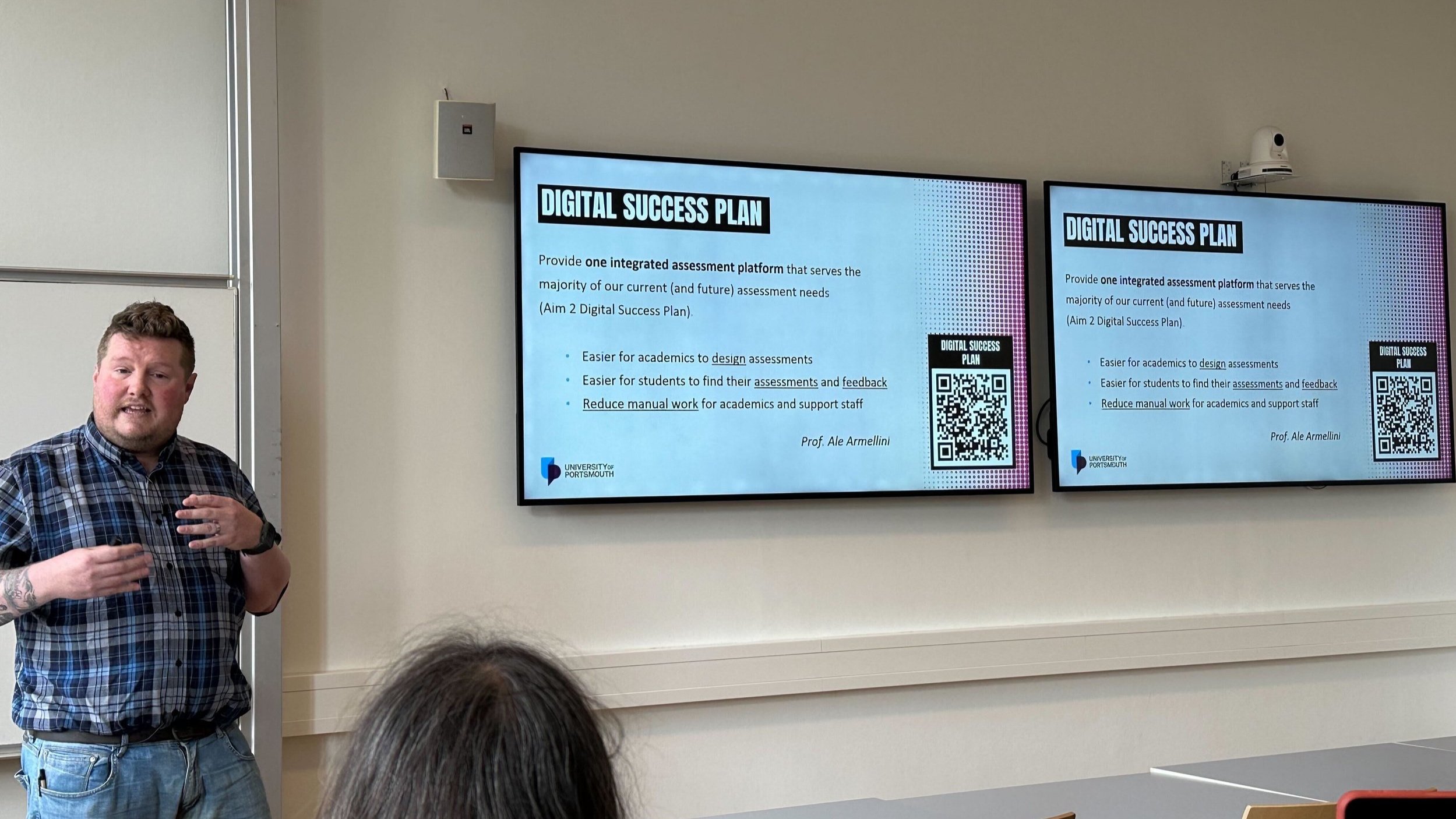
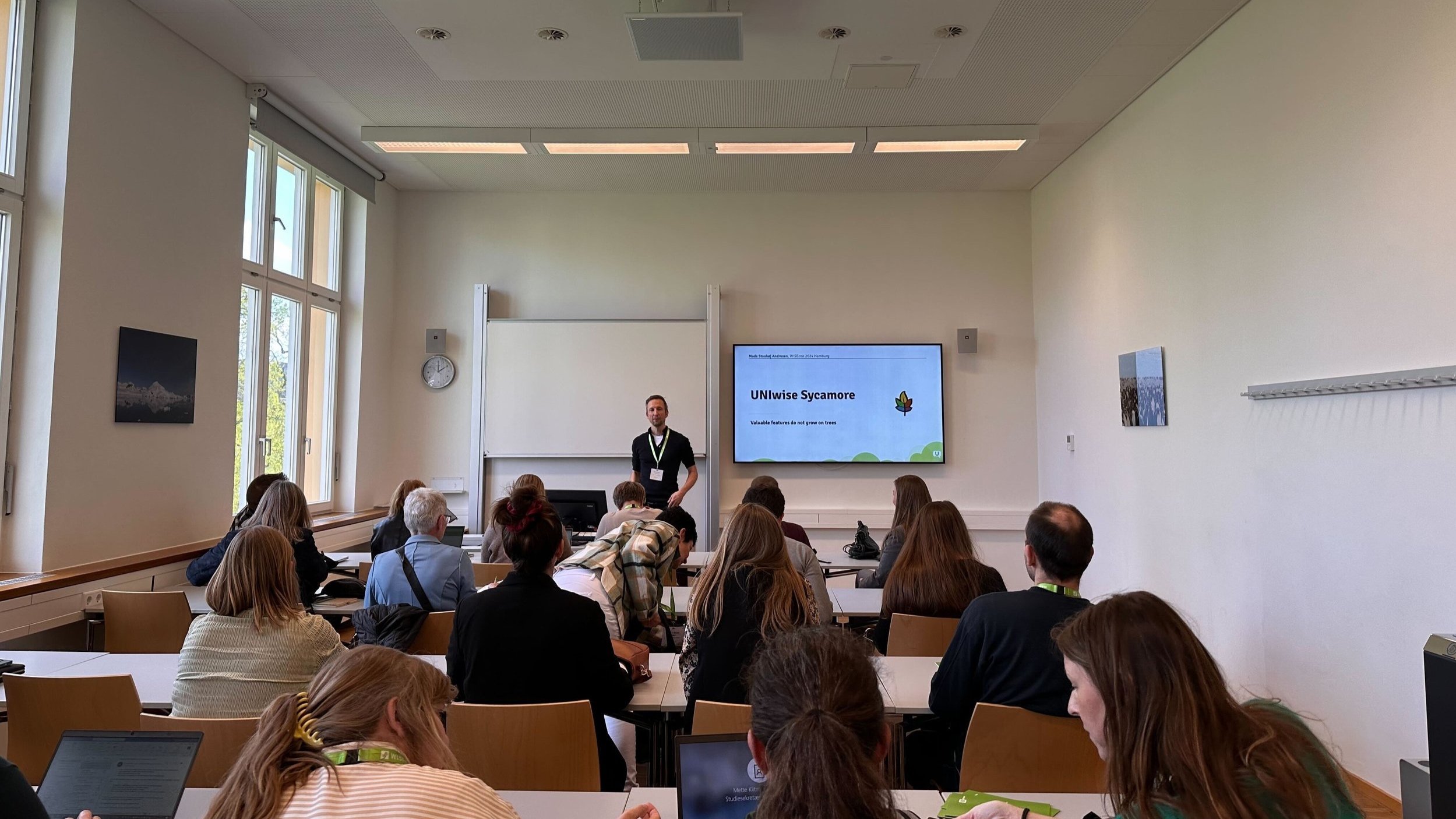
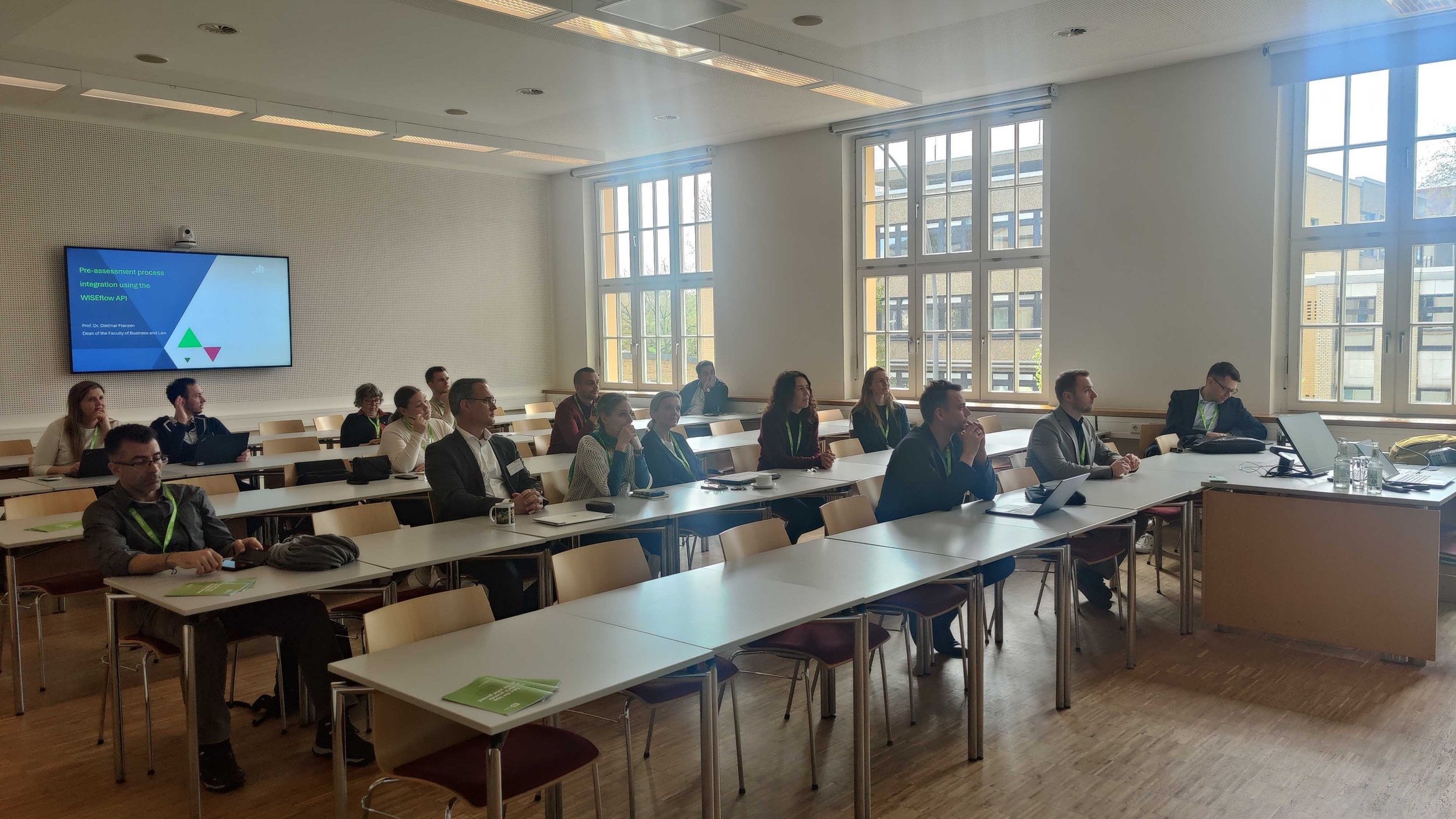
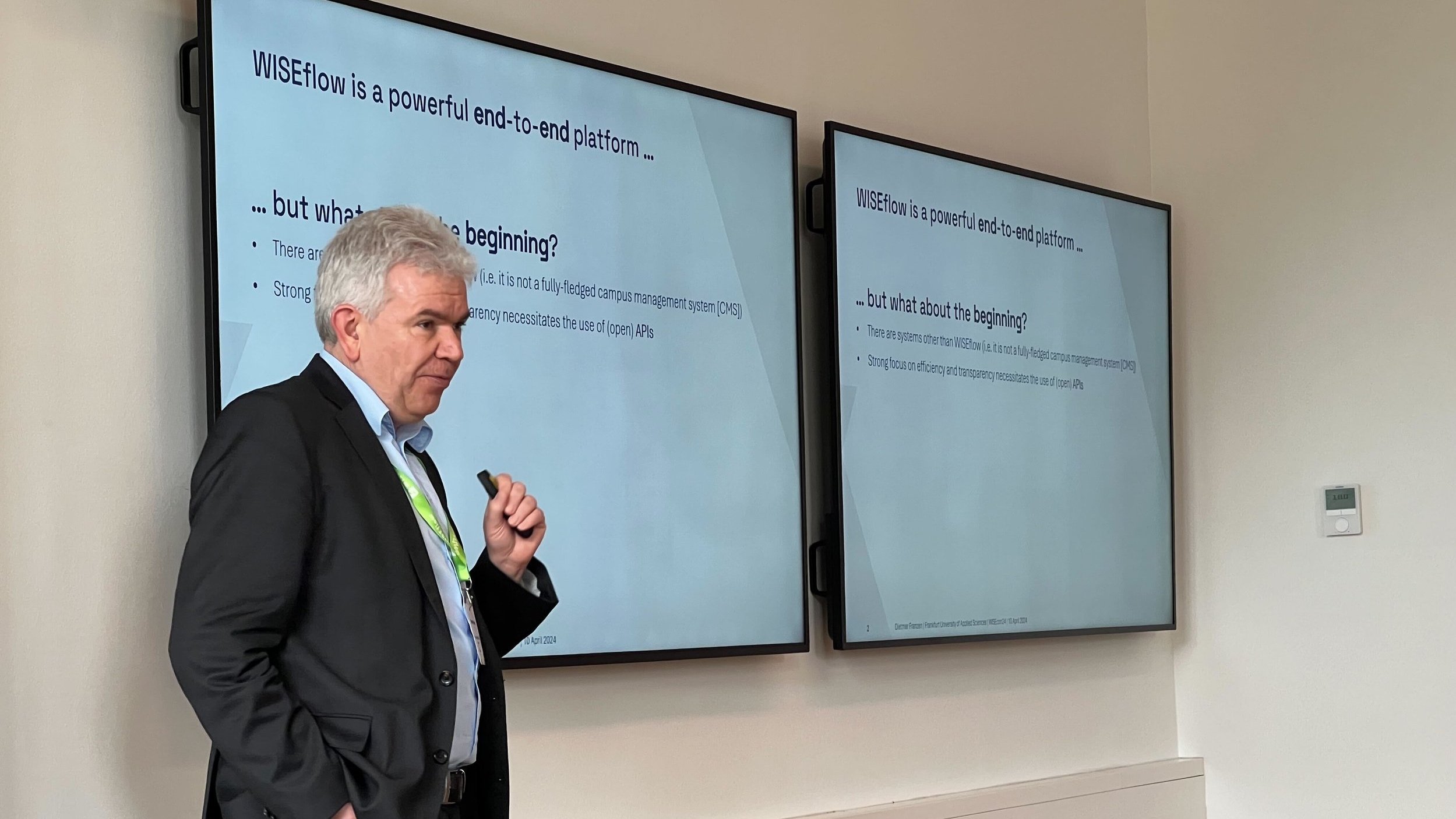
Thus concluded our breakout sessions for the conference – and so attention then turned to our final keynote session, “Navigating the Shifting Landscape of EdTech: Insights from Monterro and UNIwise.” UNIwise CEO Henrik Løvig was joined by Leif Bohlin, Managing Director of Monterro and Chairman of the Board at UNIwise. Leif gave an overview of Monterro and its role in the higher education sector, before Henrik explored what the future looks like for UNIwise over the coming years.
Finally, after our Chief Customer Success Officer Amir Ebrahimi gave his closing remarks, WISEcon24 drew to a close. We want to thank all the attendees and speakers for making the event what it was – without your tireless enthusiasm and dedication to sharing best practices among peers, the event would not have been nearly as meaningful or enjoyable for everyone involved.
All that’s left to say now is... see you all at the next one!



